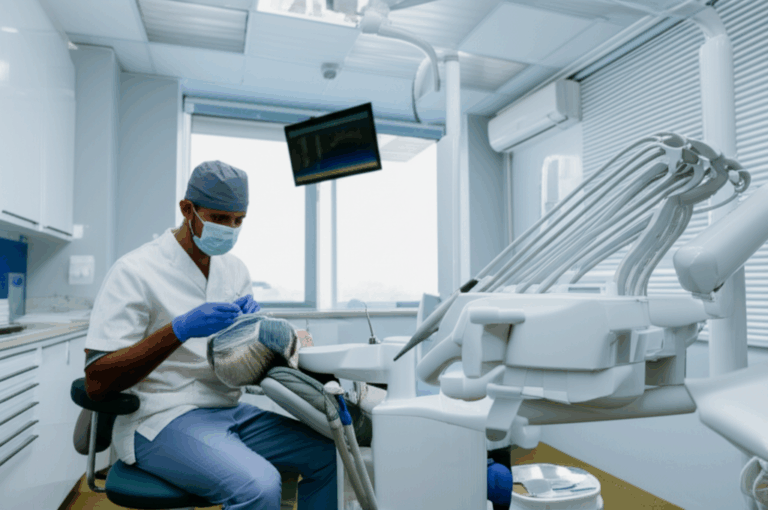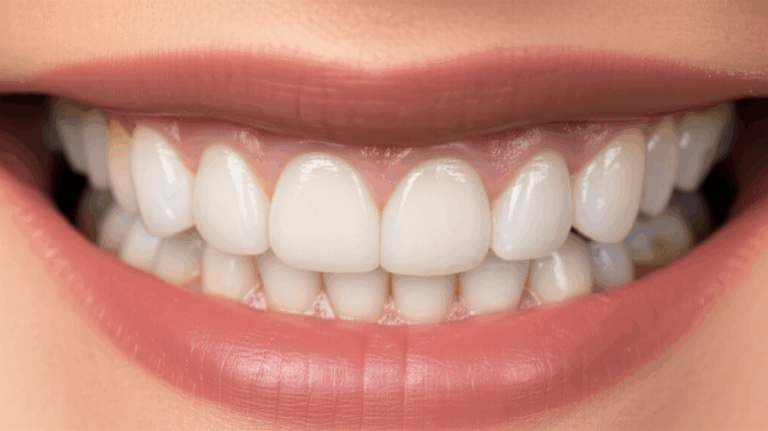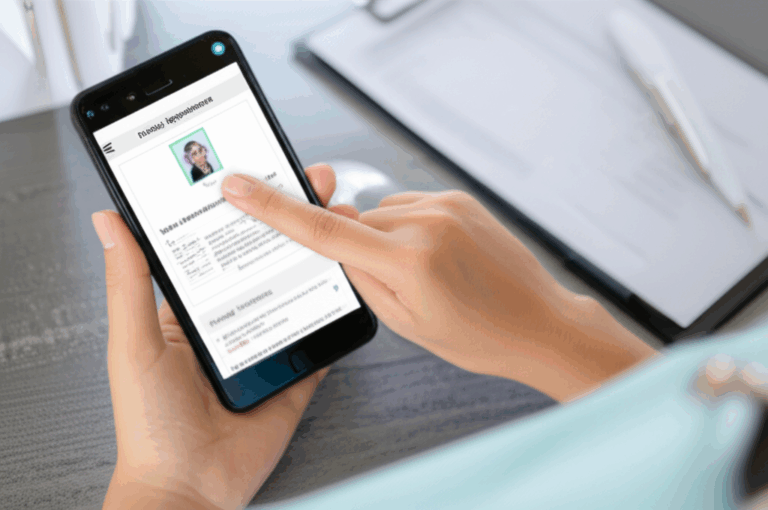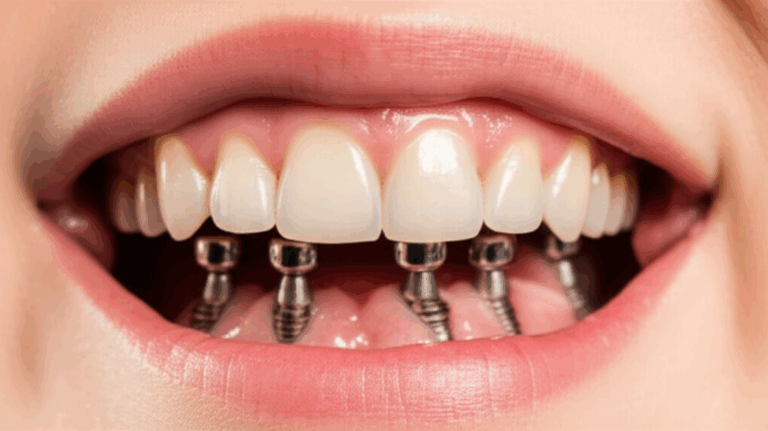
How to Become a Dentist in Singapore: My Complete Guide to Licensing, Jobs, and Career Success
Table of Contents
- Introduction: Why I Chose Singapore and What I Learned
- Essential Requirements to Practice Dentistry in Singapore
- Registration with the Singapore Dental Council (SDC)
- Step-by-Step: How I Would Tackle SDC Registration
- Navigating the Dental Job Market in Singapore
- Salaries and Compensation: What to Expect
- Work Passes and Immigration for Foreign Dentists
- Career Progression and Professional Development
- Living and Working in Singapore: The Realities
- Case Study: How a Foreign-Trained Dentist Broke In
- Key Resources and Final Checklist
- Conclusion: Your Next Step
Introduction: Why I Chose Singapore and What I Learned
When I first started thinking about working as a dentist in Singapore, I felt excited but also a bit lost. Singapore has great clinics, a stable healthcare system, and they really care about good patient care. But the process to get in is strict. You need the right degree, the right registration, and the correct work pass. Miss any step and you will run into trouble.
I wrote this guide to help you see the whole process from start to finish. I’ll explain how SDC registration works, the differences between temporary, conditional, and full registration, and how jobs are split between public and private clinics. I’ll also share what salaries look like, what it’s really like to live here, and how I’d plan the whole journey if I were doing it today.
This isn’t just my opinion. Wherever I can, I’ll point to rules from the Singapore Dental Council (SDC), Ministry of Health (MOH), and Ministry of Manpower (MOM). Things change, so always check details on the official sites before you apply. I’m here to make the process easier and warn you about mistakes that catch people out.
Essential Requirements to Practice Dentistry in Singapore
If you remember nothing else from this section, remember this: In Singapore, you can’t work as a dentist until you are registered with the Singapore Dental Council. Registration depends on your dental degree, your background, your English, and your recent hands-on work.
Educational Qualifications and Degree Recognition
For most people, the first thing SDC looks at is where you got your degree.
- For people who studied in Singapore:
- Graduates from the National University of Singapore (NUS) Faculty of Dentistry have the easiest time. They get a Bachelor of Dental Surgery (BDS). After training, they can move into house officer jobs and then full registration after meeting SDC rules.
- For people who studied overseas:
- SDC keeps a list of accepted dental schools and courses. These usually include many universities in the UK, Australia, New Zealand, Ireland, Canada, and the US. The list can change, so look up SDC’s latest approved list before you do anything.
- If your degree is not on that list, SDC might still look at your application, but you may have to do extra assessments, supervised practice, or other steps.
- Understanding the BDS and similar degrees:
- Singapore accepts the BDS and similar degrees from some universities. What matters is the exact school and course — the degree name alone is not enough.
If you already have a specialist degree like Orthodontics or Oral and Maxillofacial Surgery, it’s a different process. You still need to get general registration first, and then apply for specialist registration with SDC once you finish their training and work rules.
Registration with the Singapore Dental Council (SDC)
SDC is the official group under the Healthcare Professional Boards that checks all dentists in Singapore. There are three main types of registration:
- Temporary Registration:
- This is usually for people coming short-term, for teaching, special projects, or watching others work. It’s for visiting dentists or people on a set project.
- Conditional Registration:
- This is common for foreign-trained dentists. Here, you work under another dentist’s supervision in a clinic that is approved. SDC checks your skills and feedback from your supervisor during this time. You’ll need supervisors and regular check-ups.
- Full Registration:
- You get this when you’ve shown SDC you’re skilled and behave well. You can then work on your own.
Key documents you usually need:
- Degree certificate and school marks
- Proof that SDC accepts your degree (or enough info for them to judge if it’s ok)
- Good Standing Certificate from your last place of work
- Proof of who you are and where you live
- Proof of English skills if SDC asks for it
- Proof you have real experience treating patients
English language:
- If you didn’t study in English, or SDC asks, you’ll need to show an English test score. The IELTS with a total score of 7.0 and no band below 6.5 is common in SDC’s rules. The OET test may also be fine, depending on what SDC says now.
Clinical experience:
- SDC wants to see you’ve been treating patients recently. If you have big gaps, getting approval is harder. You might need extra supervision or exams.
Ethics and malpractice:
- Singapore expects high professional standards. Read the SDC rules on ethics. You also must have professional insurance from places like Medical Protection Society (MPS). Don’t skip this.
Step-by-Step: How I Would Tackle SDC Registration
I like checklists. They help me stay on track and avoid mistakes.
Pre-application checklist
- Make sure your dental degree is on SDC’s accepted list
- If it’s not, check SDC’s steps for special assessment
- Gather all identity documents and get them notarized if needed
- Ask for Good Standing Certificates from your last licensing place
- Get your English test results if you need them
- Write a clear CV including your real clinical experience
- Find possible employers in Singapore who will sponsor or supervise you for Conditional Registration
- Save up for the application fees and possible moving costs
- Read the Dental Act and SDC’s guide on ethics so you know what you must follow
Submitting your application
- Make an account on the SDC website
- Fill out the right registration application
- Upload signed or certified copies of your papers
- Pay the fees
- Keep copies of everything you send and check your application status
How long does it take? It depends. Many people wait a few months for the whole process. You will save time if all your papers are ready and your employer can support your supervision plan.
Competency checks and interviews
If SDC is not sure about your background, they may ask you for more:
- An interview
- A hands-on test of your skills
- Supervised practice for a while at public clinics like National Dental Centre Singapore (NDCS) or hospitals under SingHealth or National Healthcare Group (NHG)
Take these seriously. Review your recent cases, x-rays, and be ready to explain your treatment plans. Brush up on infection control and local ways of doing things. Be open to feedback.
After registration: ethics, insurance, and CPE
Once you’re with SDC, you still need a yearly practising certificate. You must also do Continuing Professional Education (CPE). The rules may change, but often you need a certain number of points each year and over two years. Keep track from the start.
I keep my professional insurance going without any gaps. Every year, I read the SDC ethical rules — even small mistakes can hurt your career.
Navigating the Dental Job Market in Singapore
Jobs split into two main groups: public clinics and private clinics. Both can offer good careers, but they have some big differences.
Public sector jobs
Public jobs include big hospitals, polyclinics with dental rooms, and national centers.
- Ministry of Health (MOH) Holdings:
- MOH Holdings looks after hiring for public hospitals. Jobs here come with clear training, career steps, and steady benefits.
- National Dental Centre Singapore (NDCS):
- NDCS is a big center for difficult cases, research, and training. It’s good for dentists who like teamwork and learning.
- Polyclinics and public hospitals:
- Clinics run by SingHealth and NHG take care of many general cases. Hospitals such as Singapore General Hospital, Tan Tock Seng Hospital, and others have dental teams or experts.
- Common jobs:
- House Officer or Dental Officer for new grads
- Medical Officer level jobs for those with some experience
- Specialist jobs for advanced training
Why public jobs first? You learn local systems fast, and find good mentors. The pay is steady but sometimes lower than some private clinics.
Private practice
Private clinics include both small setups and big dental groups. You’ll use new tools and see managers making fast decisions. You also see more of the business side.
- Small clinics:
- You work closely with the owner. You know your patients well but also do more admin.
- Big dental groups:
- You get systems, help with marketing, and referrals. There may be production goals and reviews.
- Locum (temp) roles:
- These help clinics when they need extra help, or let you try working in different places. You still need the right registration and clear roles.
Pros and cons:
- Private jobs can pay more if you’re busy. They need good communication and selling skills, and can mean long days if you want to earn more. If you own a clinic, you take on financial risk too.
General dentist or specialist?
Singapore has specialists in Orthodontics, Oral Surgery, Endodontics, Periodontics, Prosthodontics, Child Dentistry, and Restorative work. If you want to specialize, check SDC’s rules and see how to apply for local or accepted overseas training.
- Dental residency:
- Getting a training spot in Singapore is hard. You usually need to apply through public clinics.
- Specialist registration:
- SDC checks all your specialist training, how long you’ve worked, your cases, and your exam results.
I suggest new dentists get a strong general background first. You’ll have wider experience and more success with specialty applications later.
Finding jobs: where to look
How I find jobs:
- Public jobs are on the MOH Holdings job portal and on SingHealth/NHG websites.
- Private jobs are on job boards, Facebook groups, and through dental job agencies.
- The Singapore Dental Association (SDA) helps with networking and education. Join if you plan to stay — you’ll find mentors and job leads.
I email clinics with a short message about why I’d fit in, plus a one-page CV. If I need Conditional Registration, I’m open about needing a supervisor. Being honest builds trust.
Salaries and Compensation: What to Expect
Let’s talk numbers. These are average numbers from open sources and what I see. Your real pay will depend on how much you work, where you’re based, and your skill.
- Public sector for beginners:
- House Officers and some Dental Officers usually see between S$4,000 and S$6,000 per month. Public jobs have extra things like medical leave and training support.
- Experienced general dentists in private clinics:
- A regular range is S$7,000 to S$15,000 a month. Dentists in popular areas can earn more. Payment could be a fixed salary, salary + commission, or only commission.
- Specialists:
- Specialists may reach S$12,000 to S$30,000 or more monthly in private clinics. Harder cases and good reputation help with these numbers.
Main things that affect pay:
- Public or private clinic
- Your experience and skills
- Whether you have a specialty
- Which area you work in and the local patients
- How smooth and fast you work
Benefits and CPF:
- If you’re a citizen or PR, you and your boss pay into the Central Provident Fund (CPF) which covers things like retirement and medical bills. Other benefits can include paid leave and training allowance.
Cost of living:
- Singapore is safe and clean, but not cheap. Housing and schools can be expensive. Before signing a contract, list your real costs and compare it to what you could bring in.
Dental fees and tools:
- Private clinics use lots of new dental gear like scanners, 3D x-rays, and computer-made crowns and bridges. If you want to focus on these, team up with a good digital dental lab early. Crowns and bridges do best with top crown and bridge lab work. Implant jobs need careful detail, so I look for an implant dental laboratory that knows how to guide surgery cases. For extra-strong crowns, proven zirconia lab materials work well.
Work Passes and Immigration for Foreign Dentists
You cannot work as a dentist in Singapore without the right visa or pass. Your company usually does the application, but you need to understand the basics.
- Employment Pass (EP):
- For skilled professionals with enough qualifications and salary. Whether you get an EP depends on the job, the company, and your background.
- S Pass:
- Usually for lower-skilled staff, so most dentists go for the EP.
- What you need:
- Passport and degree
- Job offer letter showing salary and job
- SDC registration or an approval letter if you do not yet have your full paper
- Becoming a PR:
- Many dentists apply for Permanent Residency (PR) after some years, through the Professionals, Technical Personnel and Skilled Workers (PTS) scheme. Good work history, salary, and community work help your chances. PR status means CPF and easier job changes.
Timing is important. Match your SDC registration and EP application so you can start work easily. Some dentists get SDC conditional approval first, then finish the EP once they have a job offer. Stay in touch with your company HR and check the MOM website.
Career Progression and Professional Development
The best dentists keep learning. Singapore’s system pushes you to do the same.
CPE requirements
You must do ongoing courses or learning to stay registered. Keep a folder of what you attend and your points. SDC says how many points per year or two. They can audit, so always be ready.
After-grad studies and specialty training
- Local training:
- Public clinics and NDCS run programs for specialties like Ortho, Endo, Perio, Prostho, Paeds, and Oral Surgery. Lots of people want these, so you need strong experience to get picked.
- Overseas study:
- Many study in the UK, Australia, New Zealand, or North America. Coming back, SDC checks if your specialty counts.
- Research and teaching:
- If you like academics, look for roles at NDCS, NUS Dental, or in big hospitals. Research in digital dentistry and new dental materials is growing.
Leadership and opening your own clinic
Some dentists move into running public teams. Others open clinics. If you want to run a clinic, learn the rules for licensing, infection control, radiation safety, and medical devices. Also check rules from IRAS for tax. Get a grip on staff, payroll, and marketing early. I keep a list of good partners, including a quality dental ceramics lab, because good lab work means fewer returns and happier patients.
Mentoring and networking
Join the Singapore Dental Association. Go to dental study groups. Ask for help or mentoring from experienced dentists if you’re in the public sector. Attend open workshops at NDCS and NUS. People remember those who show up and help out.
Living and Working in Singapore: The Realities
I enjoy living in Singapore. It’s safe, busy, and they expect high standards.
Good points:
- Great healthcare and living standards
- Mix of patients who care about their health
- Reliable rules and safe environment
Difficult bits:
- It’s expensive
- Private clinic work can mean long hours
- Lots of dentists, so you’ll need to stand out
Fitting in:
- Be clear and polite in how you talk
- Learn how public clinics send and get referrals, and how private dental insurance works
- Get used to local ways for consent and billing
- If you are PR or citizen, understand CPF
Case Study: How a Foreign-Trained Dentist Broke In
People often ask how a dentist from overseas can do it. Here’s a true story (details changed for privacy):
- Background:
- Dentist had a BDS from another country. Three years’ work in general dentistry. School was on SDC’s accepted list.
- Steps:
- Applied for Conditional Registration with a sponsor in public sector
- Did a six-month hands-on placement to get used to local rules and paperwork
- Did a skills assessment
- Problems:
- Good Standing Certificate took a long time to get
- IELTS test had a two-month wait
- Result:
- Got Full Registration after finishing supervision
- Moved into private practice focusing on cosmetic and repair work
- Kept busy by learning digital dentistry and aligner cases, working closely with a good lab for retainers and night guards. When clear retainers and mouthguards became common, a trusted dental lab for retainers and a night guard dental lab kept remake rates low and patients happy.
What made the difference? A supportive sponsor, tidy paperwork, and a fast effort to pick up local ways of doing things.
Key Resources and Final Checklist
When I’m getting ready to apply or giving advice, this is my go-to list.
Groups and rules to know:
- Singapore Dental Council (SDC)
- Ministry of Health (MOH)
- Ministry of Manpower (MOM)
- National University of Singapore (NUS) Dental
- National Dental Centre Singapore (NDCS)
- SingHealth and National Healthcare Group (NHG)
- Health Sciences Authority (HSA)
- Singapore Dental Association (SDA)
- Central Provident Fund (CPF)
- Inland Revenue Authority of Singapore (IRAS)
- The Dental Act
Specialties for future training:
- Orthodontics
- Endodontics
- Periodontics
- Prosthodontics
- Child Dentistry
- Oral and Maxillofacial Surgery
- Restorative Dentistry
Papers to get ready:
- Degree and grades from approved school
- Good Standing Certificate
- Passport and ID
- English test result if needed
- Detailed CV with work history
- Sponsor or supervisor letters for Conditional Registration
- Medical insurance certificate
- CPE plan
Job search places:
- MOH Holdings for public clinics
- SingHealth and NHG jobs pages
- SDA events and community
- Healthcare agents for dental jobs
- Private clinic sites and dental forums
Visas and passes:
- Employment Pass is the main route for dentists
- Learn about applying for PR
- Match your work pass and SDC steps for smoother start
Work must-haves:
- Professional insurance, like from MPS
- Follow SDC’s rules on ethics
- Infection control and safe x-ray practices
- Know how to use digital dentistry tools. Scanners and planning software are a big help
- Have a good lab partner for crowns, bridges, and other work
Frequently Asked Questions I Hear All the Time
Is there a need for dentists in Singapore?
- Mostly yes, especially for experienced general dentists and some specialists like Ortho and Endo. Private sector need can change with the economy.
How long does SDC registration need?
- It depends. Often a few months. Collecting Good Standing Certificates, booking English tests, and getting a sponsor can take time.
Do I need an English test?
- If you didn’t study in English or SDC asks for it, yes. IELTS overall 7.0, not below 6.5 per part, is a common rule.
What about CPE?
- You must gather points each year and over every two years to keep your certificate. Keep records. Courses through SDA, NDCS, or approved groups count.
Can I open my own clinic as a foreign dentist?
- First, get Full Registration and the right work pass. You also need to follow rules for clinic license, device safety, radiation, and register as a business. Most start as employees before opening clinics.
What about dental assistants?
- Therapists, hygienists, assistants, and oral health workers are key. Work smoothly with them. Good teamwork is needed.
What I Would Do If I Were Starting Today
- Check if my degree is on SDC’s list first
- Take the IELTS early if I need it
- Find a sponsor for Conditional Registration if my degree is from overseas
- Prepare very clear, signed documents
- Apply for public jobs to learn local systems
- Join SDA and attend local learning events
- Set up digital workflows and pick a trustworthy lab partner
- Keep track of all CPE from the start
- Save enough for six months of living costs before moving
- Stick to SDC rules as my main guide
A note on accuracy and professional review
I wrote this guide based on real frameworks, SDC and MOH rules, and what I see in Singapore’s dental world. I also checked steps with dentists who have SDC registration and supervise others. Rules change. Check every key step on the SDC and MOM websites or with your new employer’s HR before you apply.
Conclusion: Your Next Step
You can have a great career as a dentist in Singapore. The steps are strict because safety matters here. Learn the rules. Prepare your documents. Pick the right registration. Choose a job sector that fits your life and dreams.
Start by checking SDC’s degree list. Book your English test if it’s needed. Contact employers with a good plan if you’ll need supervision. Keep your professional insurance and CPE fresh. Get involved in the dental community. Your hard work and care will be noticed.
This is your guide — take that first step today.








